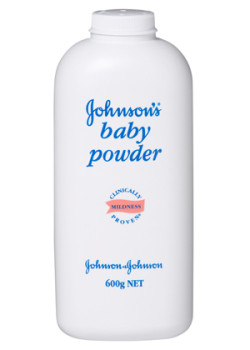Top Class Actions’s website and social media posts use affiliate links. If you make a purchase using such links, we may receive a commission, but it will not result in any additional charges to you. Please review our Affiliate Link Disclosure for more information.

The Cancer Prevention article was a meta-analysis, a type of research study that pools data from multiple research studies and uses them to increase the statistical analysis of a new study. Scientists in general, and epidemiologists in particular, use a branch of mathematics to determine the significance of connections in their data.
When a scientist says “significance,” they use a slightly different meaning than most people. In scientists’ usage, “significance” means that it is statistically likely that apparent connections in data are not the result of random chance.
Using multiple studies’ data creates a larger pool of information, increasing the statistical power of the data, making their conclusions more solid. In this case, the meta-analysis looked at data from eight studies that explored the possibility of a link between baby powder and ovarian cancer.
Researchers found that women who used talcum powder-based baby powder on their genitals suffered an increased risk of ovarian cancer. Researchers performed several statistical analysis techniques to test the strength of this connection. Researchers found similar data across most types of ovarian cancer. Additionally, the researchers of the Cancer Prevention study looked at other risk factors for ovarian cancer, including age. Even when adjusting for these other risk factors, there was still a statistically significant increase in the risk of ovarian cancer.
A series of research papers, including those used in the meta-analysis have explored the alleged connection between ovarian cancer and talcum powder-based baby powder. As early as the 1970s, scientists suspected such a link as researchers had discovered talcum powder embedded in the tissue of more than three-quarters of ovarian tumors.
However, this type of study is insufficient to definitively prove a link between ovarian cancer and baby powder. These newer studies have increased the credibility of such a potential link, leading to various baby powder lawsuits.
Baby powder lawsuits allege that the makers of baby powder were aware — or reasonably should have been aware — of the risk of ovarian cancer allegedly linked to their product. These baby powder lawsuits further allege that in spite of this, companies like Johnson & Johnson actively promoted talcum powder based products for genital use, like Johnson & Johnson’s Shower to Shower powder, despite the risk of ovarian cancer allegedly linked to talcum powder-based baby powder.
Do YOU have a legal claim? Fill out the form on this page now for a free, immediate, and confidential case evaluation. The attorneys who work with Top Class Actions will contact you if you qualify to let you know if an individual lawsuit or class action lawsuit is best for you. [In general, baby powder cancer lawsuits are filed individually by each plaintiff and are not class actions.] Hurry — statutes of limitations may apply.
ATTORNEY ADVERTISING
Top Class Actions is a Proud Member of the American Bar Association
LEGAL INFORMATION IS NOT LEGAL ADVICE
Top Class Actions Legal Statement
©2008 – 2024 Top Class Actions® LLC
Various Trademarks held by their respective owners
This website is not intended for viewing or usage by European Union citizens.
Get Help – It’s Free
Join a Free Baby Powder Cancer Class Action Lawsuit Investigation
If you used Johnson’s Baby Powder, Shower to Shower, or another talcum powder product and were diagnosed with ovarian cancer, you may have a legal claim. Family members of loved ones who died of ovarian cancer can also join. Submit your information now for a free case evaluation.
An attorney will contact you if you qualify to discuss the details of your potential case at no charge to you.












